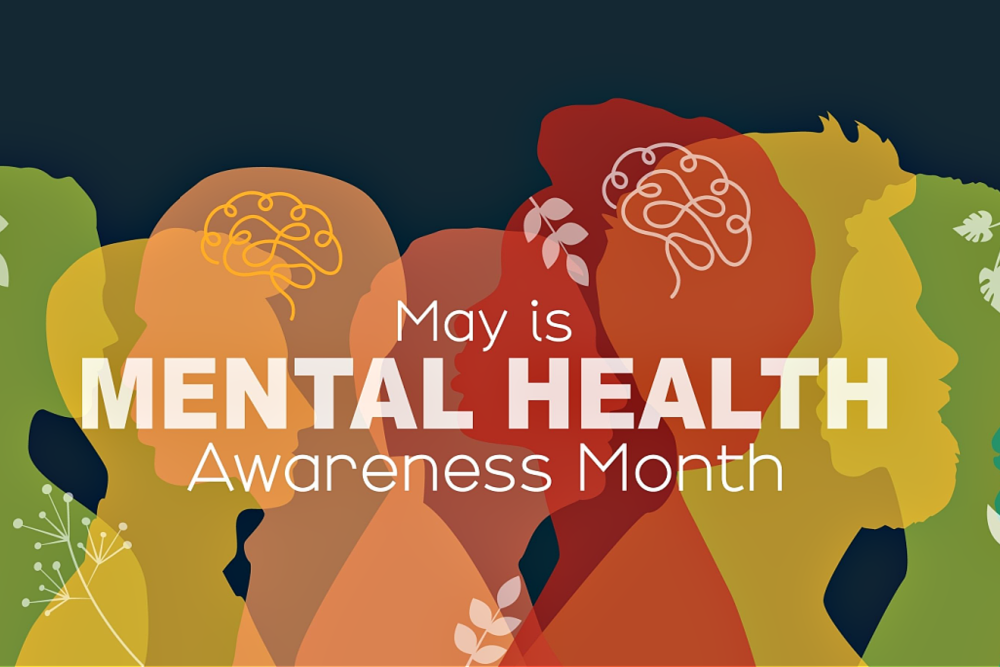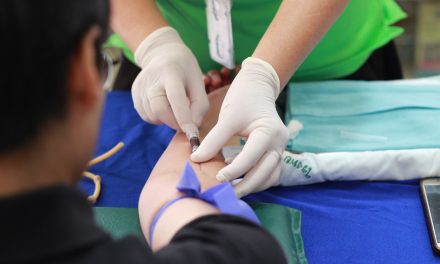(Photo Credits: NStafeeva from Shutterstock)
May marks Mental Health Awareness Month, a time dedicated to raising awareness about mental health and breaking the stigma surrounding mental illness. In 2024, amidst ongoing global challenges, the importance of mental health awareness is more significant than ever. This observance serves as a reminder to prioritize mental well-being and provide support to those in need.
For the LGBTQ+ community, mental health remains a critical issue often compounded by discrimination, stigma, and societal pressures. LGBTQ+ individuals are disproportionately affected by mental health challenges, with higher rates of depression, anxiety, and suicidal ideation compared to their heterosexual and cisgender counterparts. The experience of stigma, rejection, and violence due to one’s sexual orientation or gender identity can contribute to feelings of isolation, low self-esteem, and psychological distress.
Navigating the intersection of mental health and LGBTQ+ identity can be complex. Many individuals face barriers to accessing culturally competent mental health care, including concerns about confidentiality, fear of discrimination from healthcare providers, and a lack of awareness about affirming resources. Additionally, the internalized stigma and shame associated with being LGBTQ+ can further exacerbate mental health struggles, leading to reluctance in seeking support.
During Mental Health Awareness Month and beyond, it is crucial to prioritize the mental well-being of LGBTQ+ individuals and create inclusive spaces where they feel safe and supported. This includes promoting acceptance, understanding, and access to affirming mental health services tailored to the unique needs of the LGBTQ+ community.
In times of distress or crisis, it is essential to know where to turn for help and support. LGBTQ+ individuals facing mental health challenges can reach out to various organizations and hotlines that offer affirming and confidential assistance. Here are some resources:
1. The Trevor Project: A leading organization providing crisis intervention and suicide prevention services to LGBTQ+ youth. The Trevor Lifeline offers 24/7 support via phone, text, or chat for individuals in crisis. They can be reached at 1-866-488-7386.
2. National Alliance on Mental Illness (NAMI): NAMI offers resources and support groups specifically for LGBTQ+ individuals experiencing mental health challenges. Their website provides information on finding local support groups and accessing mental health services. For immediate support, contact the National Alliance on Mental Illness (NAMI) helpline at 1-800-950-NAMI (6264), text “HelpLine” to 62640, or chat with them online at nami.org/help.
3. LGBTQ+ Community Centers: Many LGBTQ+ community centers offer mental health support services, including counseling, support groups, and referrals to LGBTQ+-affirming therapists.
4. Trans Lifeline: A crisis hotline staffed by transgender volunteers, Trans Lifeline provides support to transgender and gender-nonconforming individuals in crisis. Their hotline is available 24/7. For assistance, dial (877) 565-8860 in the US or (877) 330-6366 in Canada.
5. Mental Health Providers: Seek out mental health providers who are knowledgeable and affirming of LGBTQ+ identities. Online directories like Psychology Today allow users to filter providers by specialties, including LGBTQ+ issues.
During Mental Health Awareness Month and beyond, let us prioritize the mental health and well-being of the LGBTQ+ community and work towards creating a society where everyone feels supported, accepted, and valued. Remember, reaching out for help is a sign of strength, and support is available for those who need it.










“For the LGBTQ+ community, mental health remains a critical issue …”
Divisive news!
Mental health is a critical issue for EVERYONE. Shame on “The Community” for trying to “socialize” or “politicize” it.
Mental health knows no bounds when to comes to sexuality.
“The LGTBQ+ Community” needs to stop claiming it’s worse off than anyone not part of it.
YIKES!!!
nobody cares about your mental health here in America, honey, N-O-B-O-D-Y!; it’s difficult to tell what a person is feeling in their brains anyway; always been about your physical health since the beginning of time .. it truly is a shame, really